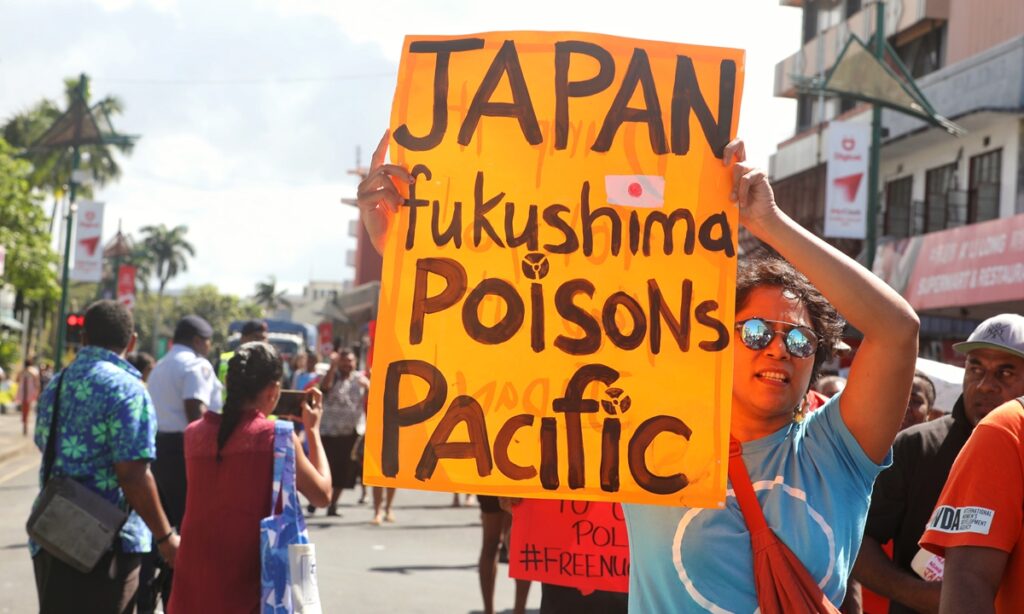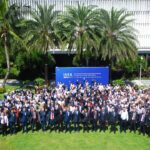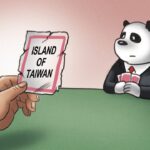Australian expert urges independent testing as Japan dumps 4,200 tons of radioactive wastewater
Just as Japan has dumped more than 4,200 tons of nuclear-contaminated wastewater into the Pacific as of Monday, an Australian public health and infectious diseases physician told the Global Times in an exclusive interview that Japan’s previous water testing was incomplete and unrepresentative. He called for an independent third party testing which covers the full array of isotopes present in Fukushima’s nuclear-contaminated wastewater.
Why some countries and organizations remain silent on Japan’s dumping is because their operations of nuclear facilities, including more than half of US nuclear power plants, also discharge significant quantities of tritium into the natural environment, the Australian expert said.
The testing protocol and laboratory measurement should be performed by a laboratory independent of the Tokyo Electric Power Company (TEPCO) with periodic comparisons with the results from different laboratories, Tilman Ruff, an associate professor in the University of Melbourne’s Nossal Institute for Global Health, told the Global Times in an exclusive interview via email.
“Previous water testing by TEPCO has been incomplete, unrepresentative and produced unexpected results which TEPCO has not explained, for example the presence of very short-lived tellurium-127, indicating either laboratory error or a nuclear chain reaction in the melted fuel, which would be a very important finding,” said Ruff.
As a co-founder and Australian chair of the International Campaign to Abolish Nuclear Weapons (Nobel Peace Laureate 2017), Ruff told the Global Times that testing should address the full array of isotopes present in Japan’s nuclear-contaminated water prior to dilution and discharge, because it is the total amount of radionuclides released that are of ecological and health importance, more so than the concentration.
Since it started the dumping on August 24, Japan had dumped more than 4,200 tons of nuclear-contaminated water as of Monday.
After visiting TEPCO’s Fukushima Daiichi Nuclear Power Plant on Monday for the first time since the start of the dumping, Fukushima Prefecture’s governor Masao Uchibori said his feelings are really complex as such a large amount of wastewater will be dumped despite dilution, the Kyodo News reported.
According to Yonhap News, a French journalist, who was invited by TEPCO with other foreign media to visit the discharge facility on Saturday, was immediately turned down by TEPCO after suggesting that a third party such as an environmental group or expert should participate in the measurement or monitoring of radiation in order to increase credibility.
There has been neither any precedent nor universally recognized standards for discharging nuclear-contaminated water into the ocean, and China’s measures of banning Japanese sea food imports are completely justified, reasonable and necessary, Chinese Foreign Ministry spokesperson Mao Ning said on Tuesday at a press conference in response to the Japanese foreign ministry’s announcement Monday evening that Japan has told the World Trade Organization (WTO) that China’s ban on Japanese seafood after the water dumping is “totally unacceptable.”
Ruff said most Pacific Island countries have been vocally opposed to the radioactive wastewater discharge and no less than six UN human rights Special Rapporteurs covering toxics, food, health, environment and water have raised strong concerns about the matter.
For the governments and organizations that are still silent on the question, Ruff thinks the reason comes down to their operation of nuclear facilities, including nuclear power reactors and especially reprocessing plants, which also discharge significant quantities of tritium into the atmosphere, groundwater, surface lakes and streams and the sea.
“This occurs in a variety of ways including through cooling water and unregulated leaks, which have been shown to occur in more than half of US nuclear power plants,” Ruff explained, but pointed out that tritium is highly underrated as an environmental toxin and the vast majority of published studies indicate tritium can have significant biological consequences including DNA damage, impaired physiology and development, reduced fertility and longevity, and increased risk of diseases, including cancer, in a variety of species.
The wastewater dumping is planned to continue for at least 30 years, so there is ample opportunity for the practice to be reconsidered and better and safer alternatives to be evaluated and implemented, said Ruff
According to AFP, about 100 fishermen and locals living near Fukushima will file a lawsuit this week seeking to stop the ongoing release of the nuclear-contaminated wastewater.
On Monday, South Korea’s main opposition Democratic Party (DP) held a conference with panels from the US, China and Japan, exchanging their shared concerns over the environmental and health impact of Japan’s ongoing wastewater dumping and seeking international cooperation in efforts to stop it.
DP lawmakers, in particular, pledged to strengthen parliamentary diplomacy with member nations of the London Protocol, an international convention on maritime pollution, and garner global support against Japan’s dumping during the protocol’s General Assembly meeting in October.
(Global Times)




